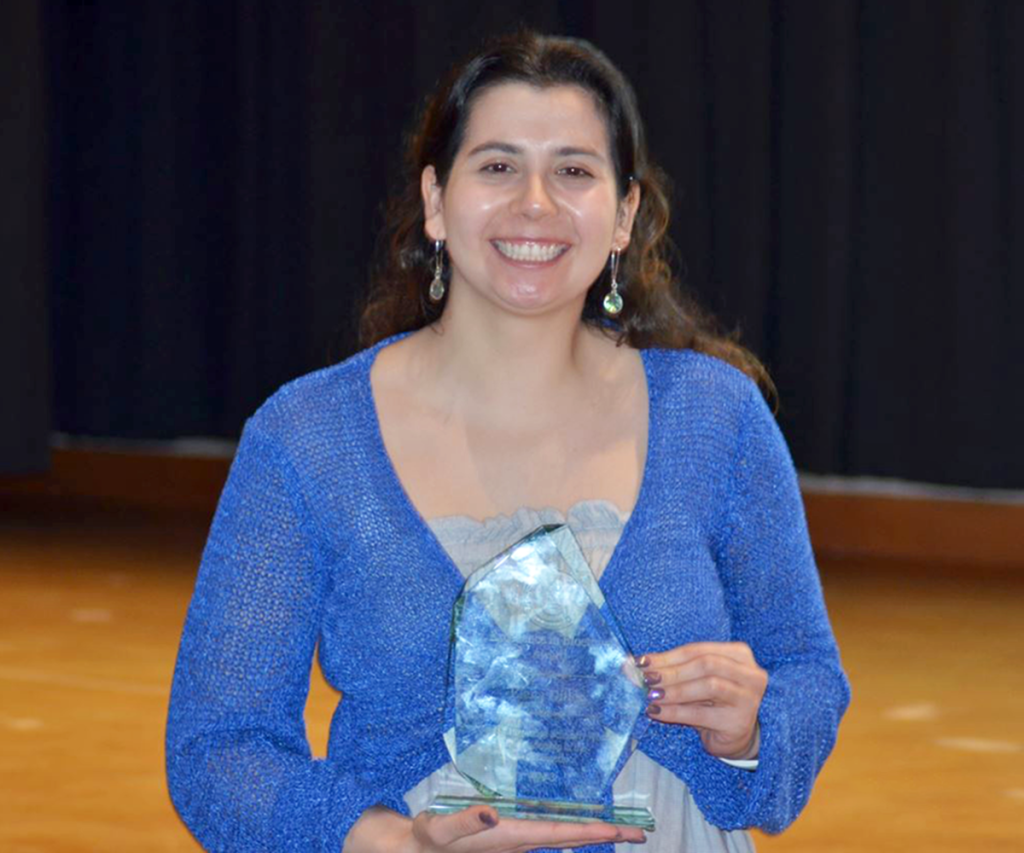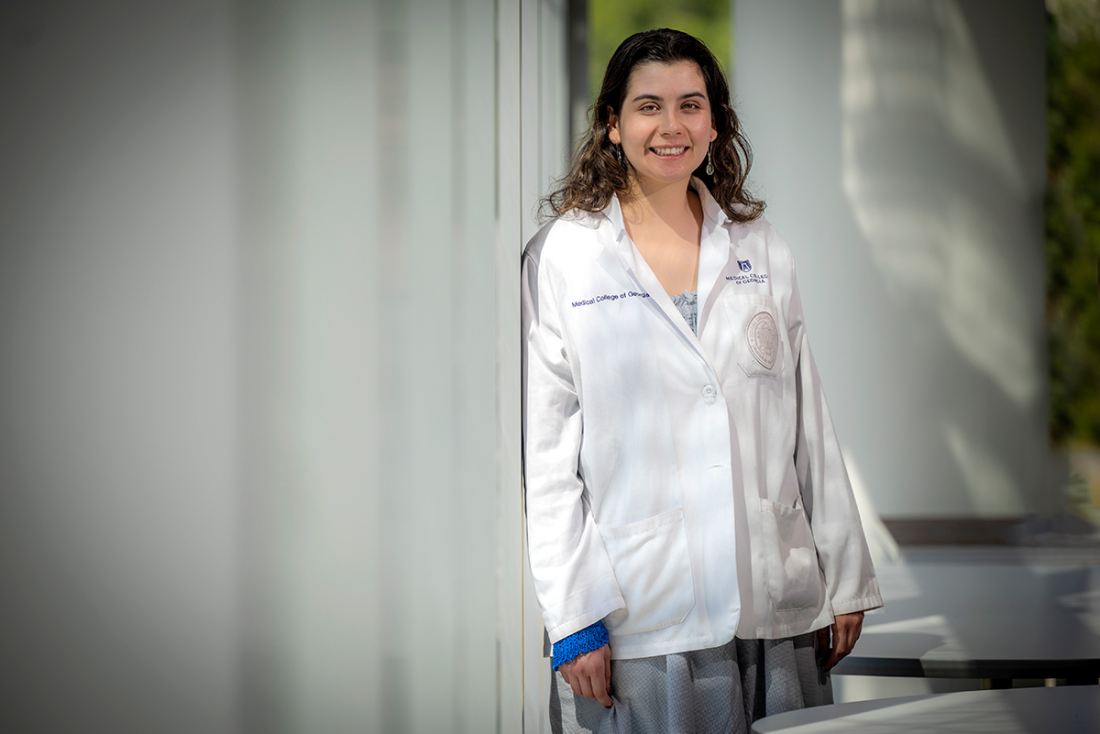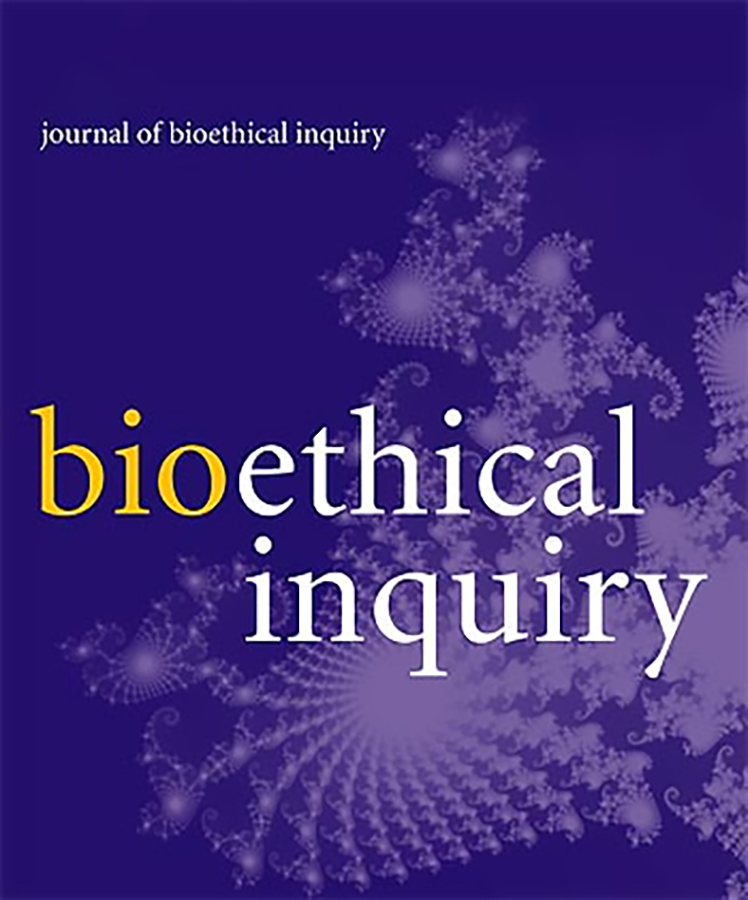A capstone is a final project where graduating students choose a real-world topic or issue and use the knowledge and skills they have gained throughout their academic career to address it.
More times than not, these projects include presentations that are delivered for a final grade but are then lost to the world following graduation. Being able to present a capstone to a larger audience in the form of having it published to address the real-world topic or problem can be a huge step forward for a student’s career.
Recent Medical College of Georgia at Augusta University graduate Elena Diller, MD, based her capstone project for her graduate certificate in bioethics on One Health for Pandemic Prevention, and it was published in the June issue of the Journal of Bioethics Inquiry.
Diller worked with Laura Williamson, PhD, director of the Center for Bioethics and Health Policy within the Institute of Public and Preventive Health in the proposed School of Public Health at AU.
Diller and Williamson’s published paper, “Supporting One Health for Pandemic Prevention: The Need for Ethical Innovation,” looks at the importance of finding a way to balance human life and rights, non-human animal life and rights, and environmental life.
“My capstone project was on One Health, which is sort of becoming a trendy term or philosophy regarding how we can essentially merge multiple disciplines and their philosophies and attitudes toward health. Those disciplines being veterinary medicine, environmental health, public health and even individual health. All of those have been essentially silos in the past and very rarely have humans looked at how all these different disciplines interact together in the real world. One Health is aimed at approaching topics like public health from a more interdisciplinary way of thinking that can benefit humans but also really speaks to concerns about health of the environment and animals, as well,” Diller said.
“It’s essentially recognizing how everything is connected, and we want to use a multidisciplinary approach to solve problems, like the COVID-19 pandemic, and that one person or one expert doesn’t have all the answers or information to solve these problems. We understand that our practices, especially in the health industry, when it comes to say waste management or when it comes to deforestation and interacting with our environment, we get that these have tremendous health consequences.”
The Centers for Disease Control and Prevention defines One Health as “a collaborative, multisectoral and transdisciplinary approach — working at the local, regional, national and global levels — with the goal of achieving optimal health outcomes recognizing the interconnection between people, animals, plants and their shared environment.”
Diller, who was awarded the Excellence in Bioethics Award by the Center for Bioethics and Health Policy, points to the fact that the COVID-19 pandemic, made up of the SARS-CoV-2 virus, is the third zoonotic coronavirus to appear in the last decade. The other two include Middle Eastern Respiratory Syndrome (MERS) and Severe Acute Respiratory Syndrome (SARS).

“One of the things that really inspired the paper was the COVID-19 pandemic and the idea that it was likely a zoonotic disease that created a pandemic that killed millions,” Diller said. “The majority of all emerging infectious diseases that are a threat to human life are zoonotic, so if we’re able to better understand how our interactions with the environment and animals are contributing to consequences on our health, but also in the sense of loss of animals and loss of environmental resources. The hope is that we’re able to more I think, more collaboratively, approach these problems and predict these problems so that maybe we can prevent the next pandemic.
“One example I can give to that is in Denmark, they killed thousands of minks that they thought were infected with COVID or had the potential to be infected by COVID, and it turned out they weren’t,” Diller continued. “There was just the potential to be an outbreak, and so you have these mass killings of animals that humans did in a preventative measure to keep disease from spreading, and it’s just one example of how we’ve been prioritizing human health over animal and environmental health. To protect public interest in terms of sustainability we have to start moving away from just prioritizing what we, as individuals, think is good for human health no matter how hard that is.”
While human and public health is at the forefront of many health decisions, the field of bioethics has a role determining how health policy and practice can and should innovate to prevent and respond to zoonotic diseases which could lead to the epidemics and pandemics. This involves charting a delicate balance between the benefits and risks of individual choice versus responsibility to society.
One Health is a strategy aimed at promoting a better balance between human, animal and environmental health. While it is understood that all three are interdependent, human nature still causes an imbalance to how we address topics and issues that arise, usually at the detriment of animal and environmental health. This imbalance threatens the well-being of all, and until humans begin thinking more globally, this trend will continue to be dangerous.
“I’m delighted Dr. Diller selected this important topic to research; it’s always been great to work with her. One Health is an approach to global public health that recognizes the interrelationship between animal, human and environmental interests and highlights they can either support or harm each other,” Williamson said.
“Historically, infectious disease outbreaks have often come from pathogens crossing from animals to humans. If we want to deal with the fundamental issues driving pandemics, one of the issues we need to look at is how we treat animals. While there is growing interest in the One Health approach, the ethical dimensions remain under research and are seldom integrated sufficiently into mainstream work.
“We argue in the paper that more attention needs to be given to ethical literacy in One Health and, more generally, in global public health. Too often, health ethics remains tied to the four principles approach, which does not do justice to contemporary ethical challenges, especially in public health. I hope our new School of Public Health can give this issue more attention and help produce research and educational programs rooted in an account of ethics that is fit for purpose.”
Earlier this year, Diller was a guest editor for the April edition of American Medical Association’s Journal of Ethics, focused on meat production and consumption and the effects of both on people’s health.
Diller, a native of Rome, Georgia, graduated from MCG in May and has now started an internal medicine residency at the University of Texas’ Medical Branch in Galveston.
“There are 7 billion people on this planet, so every single action is amplified to the nth degree because there’s just so many humans on this planet. I think that in order for us to have a chance at saving the planet, we have to show some self-restriction and concern for the common good, and I think that’s where One Health comes in. You have that dialogue between experts in each area so that ideally you can reach a solution that takes into account everybody’s interests, but there will still be wins and losses and trade offs,” Diller said.
“I think One Health can help us have the tools to get our conversation to a more equitable standard where we can have conversations that both show interest to humans, animals and the environment because, in the end, our interest is inherently tied to the interest of the animals and health of the environment because those are the resources we rely on and what we interact with which can make us sick or even be the source of our health.”
 Augusta University
Augusta University





